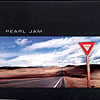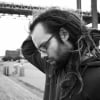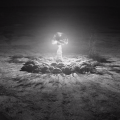Official Neil Young Thread
Comments
-
goldrush said:
Not really. They were calling out and interrupting Neil’s stories, but they weren’t being abusive. Just really annoying!Spiritual_Chaos said:Is "heckling" really the right word?
People haven't been slapped enough.
When idiots like these act like idiots... the person next to them should stand up... say, "Sir. You are offensive to the senses"... and slap them. Then sit back down as everyone else does a polite head nod acknowledging the duty the person performed for the betterment of society.
My gawd some people are stupid. Just stupid. You're not funny. You're not cool. You are abrasive and tough to tolerate. And... you are so stupid... you don't realize how annoying you are (those leers from everyone outside of your moronic friend group are not looks of admiration).
"My brain's a good brain!"0 -
It was really sad. Very similar to how people can't seem to STFU at EV shows.
The part that astonishes is that it continues even after being addressed by the performer, venue personnel and fans.
Still a great experience. Neil is a true master of his craft.If hope can grow from dirt like me, it can be done. - EV0 -
Ed solo shows are awful crowds. I stopped going in 2011-2012.dudeman said:It was really sad. Very similar to how people can't seem to STFU at EV shows.
The part that astonishes is that it continues even after being addressed by the performer, venue personnel and fans.
Still a great experience. Neil is a true master of his craft.0 -
Thirty Bills Unpaid said:goldrush said:Ohio was so raw! Broken Arrow solo for the first time since 92!
A couple of great responses to people calling out song titles - "I hope you don't think I'm keeping track", and “you can call out whatever you want and I will never play it!”
He’s very chatty tonight, but you can tell he’s had enough of people calling out
He had enough alright:
https://www.msn.com/en-ca/entertainment/music/neil-young-left-‘mentally-bruised-and-battered’-thanks-to-unruly-crowd-at-detroit-concert/ar-AAzIocH?ocid=spartanntpBack in around 1970 or so, I went to see John Mayall at Fillmore West in San Francisco. Mayall had recently broken up his band, The Bluesbreakers and was working within a new form of "blues" with Jon Mark and Johnny Almond (who went on to form the band Mark-Almond). The crowd that night kept interrupting Mayall and company's more subtle form of music with shout-outs of song requests from earlier albums/ band configurations. Well, Mayall was not someone to mess with that way. At first he dismissed the requests and politely asked audience members to respect that this was not a Bluesbreakers show and that the new configuration had been announced for this show. When the shout-outs for old numbers continued, Mayall stopped the show and addressed the hecklers up front in no uncertain terms. He really jumped down these people throats, scolding them harshly as though they were misbehaved children- which is a pretty apt description. That stopped the nonsense and the show went on from there quite well.It's too bad some of Neil's Detroit audience was so rude. They should have been asked to leave."It's a sad and beautiful world"-Roberto Benigni0 -
I agree and understand... but it's rock & roll, so lets lighten up a little, Francis, and let the drunk dude holler out Sugar Mountain once in a while lol0
-
People sitting down on an accoustic show =/= rock & roll.my2hands said:I agree and understand... but it's rock & roll, so lets lighten up a little, Francis, and let the drunk dude holler out Sugar Mountain once in a while lol
The same at Vedders shows.Post edited by Spiritual_Chaos on"Mostly I think that people react sensitively because they know you’ve got a point"0 -
My wife and I swore off solo Vedder shows until he was playing in Taormina during the same time we were going to be in Italy for our 10th anniversary. We saw the venue and figured that we just had to go.
What a difference not being in America made. Instead of the audience comprising largely entitled, belligerent assholes, the Taormina audience was actually courteous and even shushed their peers when they got too loud. It was awesome.
We’re expecting the worst audience -- it's Boston, after all -- for Neil on Thursday but hoping for the best. The last time we caught him solo, some old bimbo bumrushed Neil and tried to make out with him. It was disgusting. I hope she spent at least a night in jail. Classless twat.Post edited by dankind onI SAW PEARL JAM0 -
Spiritual_Chaos said:
People sitting down on an accoustic show =/= rock & roll.my2hands said:I agree and understand... but it's rock & roll, so lets lighten up a little, Francis, and let the drunk dude holler out Sugar Mountain once in a while lol
The same at Vedders shows.Yeah, I agree, acoustic shows are a different deal than a rock 'n roll show.I've seen the opposite happen though. I saw Leo Kottke in Santa Rosa, CA years ago and the audience was a good 90% yuppie boomers (i.e. my age) and oh so polite. Kottke would do these numbers where he's basically playing three parts on one guitar, backing the song with bass runs on the the lower strings, strumming the melody in the middle and edging in these fine little riffs on the upper strings. He'd finish a number and then you'd hear this little pitter-patter applause, clap clap, and a few garlic breathed "thank you very much's". Are you fuckin' kidding me? I let the man know I appreciated his stuff!"It's a sad and beautiful world"-Roberto Benigni0 -
Tonight's the night!I SAW PEARL JAM0
-
Great set from Neil last night.1. On The Way Home2. Long May You Run3. Homefires4. My My, Hey Hey (Out Of The Blue)5. Already One6. Only Love Can Break Your Heart7. Mellow My Mind8. Ohio9. There's A World10. Horseshoe Man11. Are You Ready For The Country?12. After The Gold Rush13. Speakin' Out14. Tonight's The Night15. Angry World16. Love And War17. Peaceful Valley Boulevard18. Out On The Weekend19. The Needle And The Damage Done20. Heart Of Gold---21. Tumbleweed
Some really disrespectful assholes in the audience, but he handled them pretty well. I don't understand what compels someone to yell bullshit out to an artist while they're working. No one here paid to hear you yell "Freebird," and you're too old to be that wasted in public, losers.I SAW PEARL JAM0 -
Great set, indeed.
I trust you enjoyed the show despite the assholes.
0 -
Love that setdankind said:Great set from Neil last night.1. On The Way Home2. Long May You Run3. Homefires4. My My, Hey Hey (Out Of The Blue)5. Already One6. Only Love Can Break Your Heart7. Mellow My Mind8. Ohio9. There's A World10. Horseshoe Man11. Are You Ready For The Country?12. After The Gold Rush13. Speakin' Out14. Tonight's The Night15. Angry World16. Love And War17. Peaceful Valley Boulevard18. Out On The Weekend19. The Needle And The Damage Done20. Heart Of Gold---21. Tumbleweed
Some really disrespectful assholes in the audience, but he handled them pretty well. I don't understand what compels someone to yell bullshit out to an artist while they're working. No one here paid to hear you yell "Freebird," and you're too old to be that wasted in public, losers.0 -
Neil Young Goes Record Shopping (and finds Neil Young bootlegs Records!)
 https://www.youtube.com/watch?v=WL88cjBWI6c
https://www.youtube.com/watch?v=WL88cjBWI6c
!972 I think ... very cool video.Give Peas A Chance…0 -
 "Mostly I think that people react sensitively because they know you’ve got a point"0
"Mostly I think that people react sensitively because they know you’ve got a point"0 -
Classic!!Meltdown99 said:Neil Young Goes Record Shopping (and finds Neil Young bootlegs Records!) https://www.youtube.com/watch?v=WL88cjBWI6c
https://www.youtube.com/watch?v=WL88cjBWI6c
!972 I think ... very cool video.0 -
Neil Young was cool about it. The guy at the end with 8 tracks ... were they bootlegs as well??cutz said:
Classic!!Meltdown99 said:Neil Young Goes Record Shopping (and finds Neil Young bootlegs Records!) https://www.youtube.com/watch?v=WL88cjBWI6c
https://www.youtube.com/watch?v=WL88cjBWI6c
!972 I think ... very cool video.Give Peas A Chance…0 -
Awesome!Meltdown99 said:Neil Young Goes Record Shopping (and finds Neil Young bootlegs Records!) https://www.youtube.com/watch?v=WL88cjBWI6c
https://www.youtube.com/watch?v=WL88cjBWI6c
!972 I think ... very cool video.
"It's a sad and beautiful world"-Roberto Benigni0 -
brianlux said:
Awesome!Meltdown99 said:Neil Young Goes Record Shopping (and finds Neil Young bootlegs Records!) https://www.youtube.com/watch?v=WL88cjBWI6c
https://www.youtube.com/watch?v=WL88cjBWI6c
!972 I think ... very cool video.
This is great. did he end up paying for it?livefootsteps.org/user/?usr=446
1995- New Orleans, LA : New Orleans, LA
1996- Charleston, SC
1998- Atlanta, GA: Birmingham, AL: Greenville, SC: Knoxville, TN
2000- Atlanta, GA: New Orleans, LA: Memphis, TN: Nashville, TN
2003- Raleigh, NC: Charlotte, NC: Atlanta, GA
2004- Asheville, NC (hometown show)
2006- Cincinnati, OH
2008- Columbia, SC
2009- Chicago, IL x 2 / Ed Vedder- Atlanta, GA x 2
2010- Bristow, VA
2011- Alpine Valley, WI (PJ20) x 2 / Ed Vedder- Chicago, IL
2012- Atlanta, GA
2013- Charlotte, NC
2014- Cincinnati, OH
2015- New York, NY
2016- Greenville, SC: Hampton, VA:: Columbia, SC: Raleigh, NC : Lexington, KY: Philly, PA 2: (Wrigley) Chicago, IL x 2 (holy shit): Temple of the Dog- Philly, PA
2017- ED VED- Louisville, KY
2018- Chicago, IL x2, Boston, MA x2
2020- Nashville, TN
2022- Smashville
2023- Austin, TX x2
2024- Baltimore
0 -
I hope not. I think musicians should have the right to confiscate any unauthorized/bootleg material they come across.lolobugg said:brianlux said:
Awesome!Meltdown99 said:Neil Young Goes Record Shopping (and finds Neil Young bootlegs Records!) https://www.youtube.com/watch?v=WL88cjBWI6c
https://www.youtube.com/watch?v=WL88cjBWI6c
!972 I think ... very cool video.
This is great. did he end up paying for it?
"It's a sad and beautiful world"-Roberto Benigni0 -
I kind of had some drunk skank behind me ruin the entire show for me when I saw Neil a couple years ago. It's infuriating that one asshole can be so horribly disruptive and awful for so many other people, and there is nothing you can really do about it, since it's not against the rules to be an annoying, obnoxious, mouthy, drunk skank.dankind said:Great set from Neil last night.1. On The Way Home2. Long May You Run3. Homefires4. My My, Hey Hey (Out Of The Blue)5. Already One6. Only Love Can Break Your Heart7. Mellow My Mind8. Ohio9. There's A World10. Horseshoe Man11. Are You Ready For The Country?12. After The Gold Rush13. Speakin' Out14. Tonight's The Night15. Angry World16. Love And War17. Peaceful Valley Boulevard18. Out On The Weekend19. The Needle And The Damage Done20. Heart Of Gold---21. Tumbleweed
Some really disrespectful assholes in the audience, but he handled them pretty well. I don't understand what compels someone to yell bullshit out to an artist while they're working. No one here paid to hear you yell "Freebird," and you're too old to be that wasted in public, losers.
With all its sham, drudgery, and broken dreams, it is still a beautiful world. Be careful. Strive to be happy. ~ Desiderata0
Categories
- All Categories
- 149.2K Pearl Jam's Music and Activism
- 110.3K The Porch
- 287 Vitalogy
- 35.1K Given To Fly (live)
- 3.5K Words and Music...Communication
- 39.4K Flea Market
- 39.4K Lost Dogs
- 58.7K Not Pearl Jam's Music
- 10.6K Musicians and Gearheads
- 29.1K Other Music
- 17.8K Poetry, Prose, Music & Art
- 1.1K The Art Wall
- 56.8K Non-Pearl Jam Discussion
- 22.2K A Moving Train
- 31.7K All Encompassing Trip
- 2.9K Technical Stuff and Help









